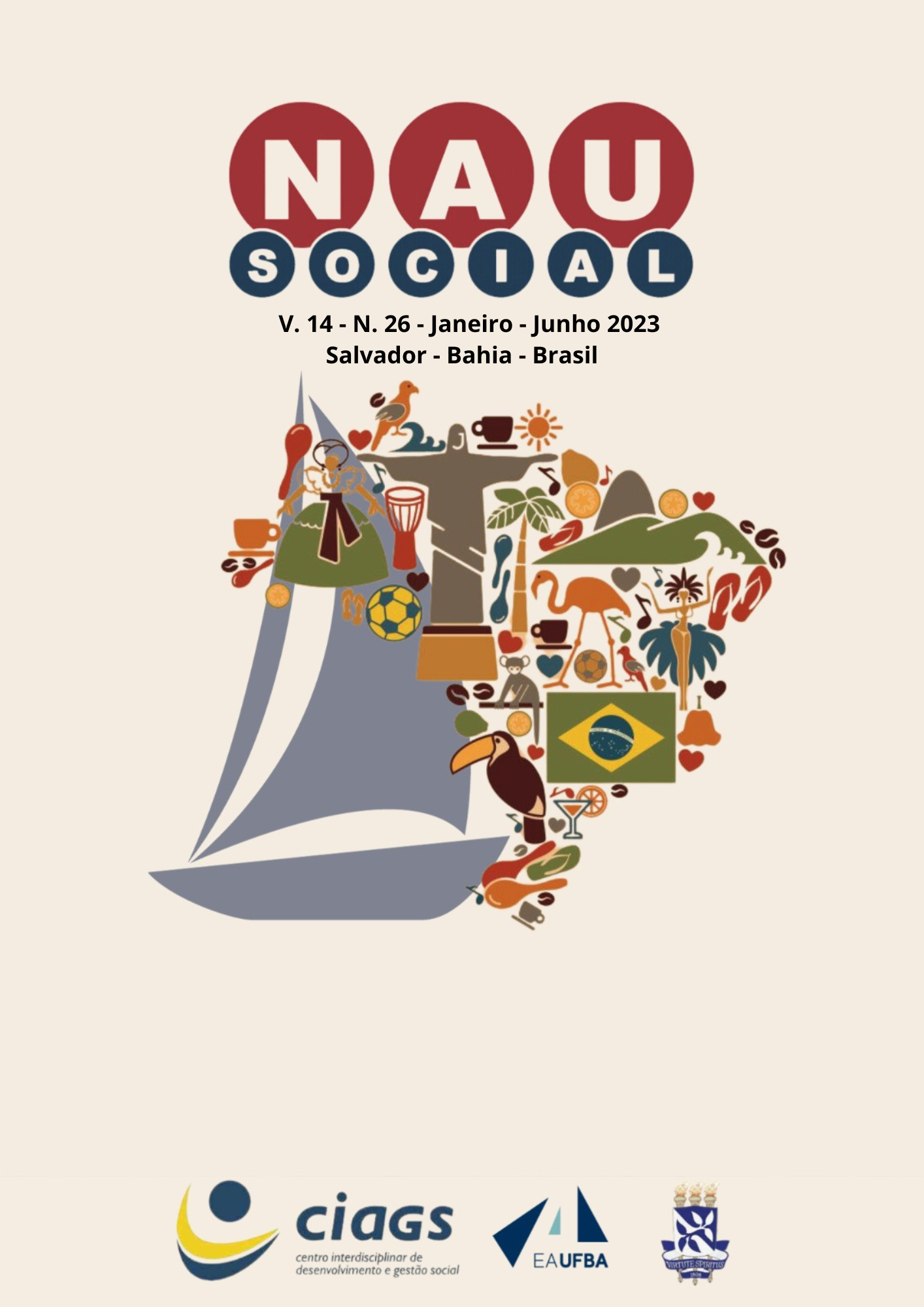COTIDIANO, BEM-VIVER E AVALIAÇÃO DAS POLÍTICAS PÚBLICAS
DOI:
https://doi.org/10.9771/ns.v14i26.52260Abstract
This article discusses, from a theoretical perspective, if everyday life can be used as an operational and comprehensive category for public policy evaluation. Taking into account contemporary discussions concerning the demands of good living and well-being as objectives behind state action, we used the definition of everyday life as presented by Agnes Heller and Henri Lefebvre, while incrementing the concept with recent discussions concerning vulnerability in the field of healthcare and social assistance, in addition to interdisciplinary research concerning care in gender studies. From this perspective, literature regarding these issues in a multi and interdisciplinary perspective was used, in addition to documents concerning the Human Development Index (HDI), Sustainable Development Goals (SDGs) and constitutional texts from Brasil, Bolivia and Ecuador. Starting from the concept of everyday life in the context of public policies for well-being, we verified how this category inserts itself in the flux of processes and results regarding the formulation, implementation, monitoring and evaluation of these policies. Lastly, we indicate how time-use research, developed in various countries, including Brazil, can be used as an instrument for the empirical verification of everyday life. Thus, our conclusion is that everyday life, as well as being an operational category, can be used for the evaluation of public policies.
Downloads
Published
How to Cite
Issue
Section
License

This work is licensed under a Creative Commons Attribution-NonCommercial 4.0 International License.





